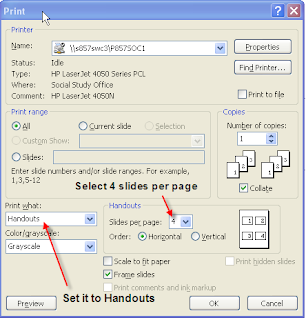We went over the chart from the reading called Canadian and American government at the beginning of class. Next, I gave you a series of readings: one entitled "the Presidential System", another that compared parliamentary democracies to presidential systems, and finally I gave you a reading on political parties, interest groups, and the media. I would like you to answer the following questions based on that last reading:
- What is the purpose of political parties, interest groups, and the media in democracies?
- What is the ultimate goal for each of the previously mentioned groups?
You will write your Democracy Final next Tuesday, so I will post a study guide for that test tomorrow.
I delivered a presentation on "Plagiarism" at the start of class. I will be sending this presentation to you today, so please check your inboxes. When citing your sources for this project, and any other Social Studies assignment or project that you will do for me this year, please use the following citation format. The actual format guide is on pages 22-25 of this PDF document. It is recommended that you make a copy of this guide as this the accepted format for citing sources that I will use this year. I then distributed the next assignment in Social 10 which is the French-English Relations Timeline Assignment. I gave you the remainder of the period to work of information collection for the timeline from the Canada Today textbook. You can find helpful information in Canada: A Nation Unfolding as well, so it's not a bad idea to investigate that resource as well. Please feel free to go to outside sources for this project, please just remember to cite your sources properly. You will have a quiz on French-English Relations this Friday, here is the study guide:
- Quiz format: Fill in the Blank Study the "History of French-English Relations" (ppt) that I have sent to you
- Know the key events, key pieces of legislation, key concepts (terms), key people in the history of French-English Relations in Canadian History (know those French names!)
You will also have your Regionalism Unit Final next Monday, March 5
th. Here is the study guide:
1. Regions of Canada (review your notes/worksheets and the PowerPoint presentation)
- physiographic regions
- climatic regions
- physiographic regions (chart)
- basic Canadian geography (provinces, territories, capitals, rivers and bodies of water)
2. Regionalism (review your notes/worksheets and the PowerPoint presentation)
- what is regionalism?
- causes of regionalism in Canada
3. Regional Disparity (same as above)
- what is regional disparity?
- what causes regional disparity?
- "have" and "have not" provinces
- what does the government do to ease regional disparity?
- shared-cost programs
- personal transfers
- equalization payments
- indicators/signposts of regional disparity
- know the key concepts!!
4. French-English Relations (review notes from the timeline assignment and the PowerPoint)
- Treaty of Paris (1763)
- Quebec Act
- Constitutional Act
- Act of Union
- Confederation
- Riel Rebellions
- WWI Conscription Crisis
- Quiet Revolution (1960-66)- Jean Lesage
- FLQ Crisis (1970)
- Parti Quebecois-Rene Levesque
- 1980 Referendum
- Meech Lake Accord
- Charlottetown Accord-referendum
- know the key concepts!!
5. Western Alienation (we'll be covering this topic later this week)
- Causes of Western alienation (root causes)
- Development of Western alienation (Great Depression)
- formation of regional political parties (UFA, Social Credit, CCF/NDP, Reform, etc.)
- regional political party ideas/objectives
- Regionalism booklet is due tomorrow at the beginning of class
- Regional Brochure is due Thursday, March 1st
- French-English Relations Quiz is on Friday, March 2nd
- Regionalism Unit Final is on Monday, March 5th
- French-English Relations Timeline Assignment is due on Tuesday, March 6th





